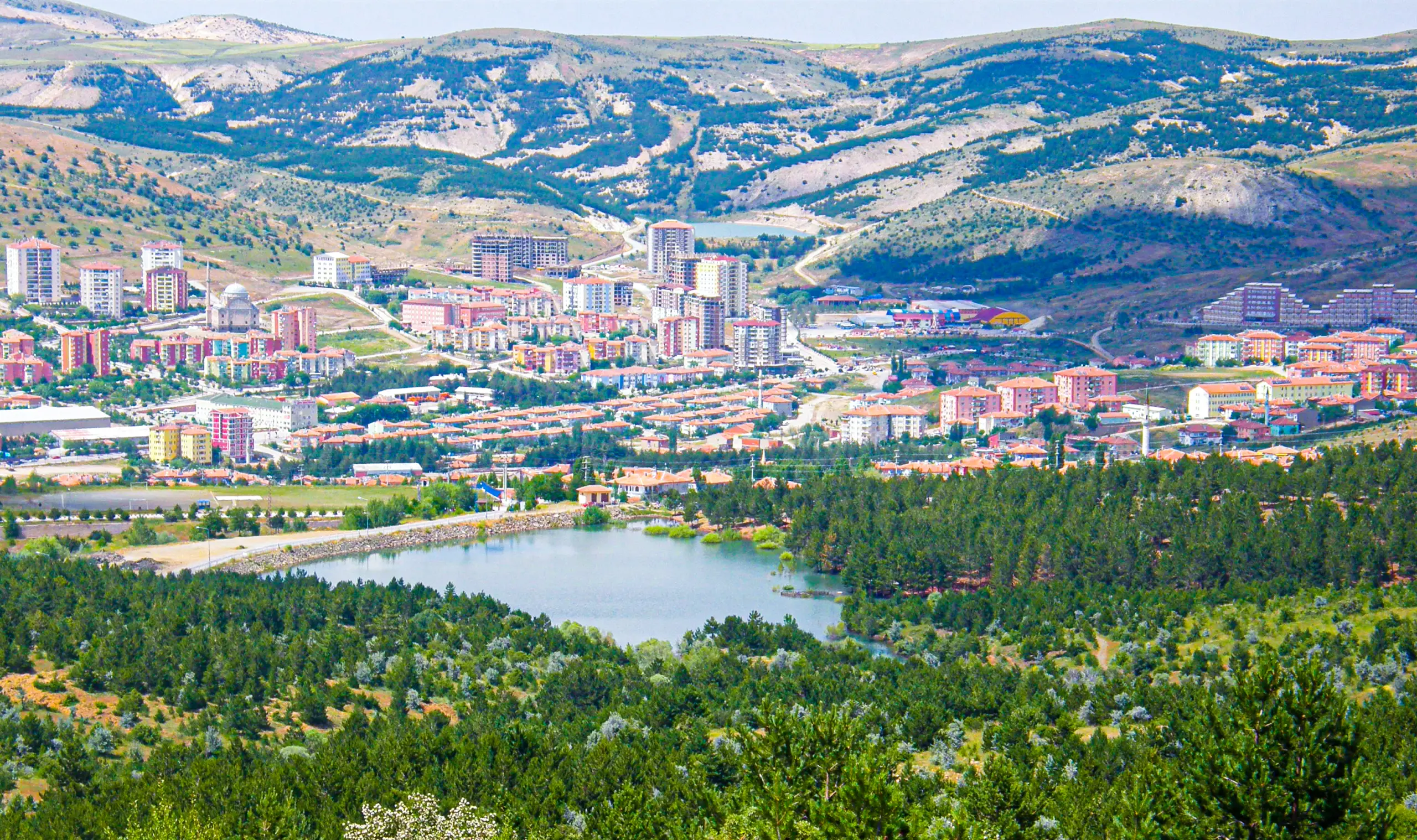Best Times and Seasons to Visit Turkey: A Comprehensive Guide
Seasonal Holidays: Turkey is a country of diverse landscapes, rich history, and vibrant culture, making it a popular destination for travelers throughout the year. However, understanding the seasonal holidays, climate variations, and public holidays can help you plan the perfect trip. This guide explores the best and worst times to visit Turkey, providing detailed information about the country’s seasons, public holidays, and off-season periods, ensuring you have an unforgettable experience whenever you choose to visit.
Seasons in Turkey by Month
Winter (December to February)
Winter in Turkey is characterized by cold temperatures and occasional snowfall, particularly in the central and eastern regions. Coastal areas such as the Aegean and Mediterranean enjoy milder winters, making them popular for those seeking a quieter, off-season holiday.
Key Highlights:
- December: Coastal regions are cool and quiet, while ski resorts like Uludağ and Palandöken offer excellent conditions for winter sports.
- January: The coldest month, with snow in much of the interior and eastern regions. Ideal for skiing and winter activities.
- February: Still cold, but with the first signs of spring appearing in the coastal areas.
Spring (March to May)
Spring is one of the best times to visit Turkey, as the weather is mild, and nature is in full bloom. This season is perfect for exploring Turkey’s historical sites, enjoying the vibrant landscapes, and participating in outdoor activities.
Key Highlights:
- March: Early spring can still be chilly, especially in the interior, but coastal areas start to warm up.
- April: A beautiful month with moderate temperatures and blooming flowers. Perfect for sightseeing and outdoor adventures.
- May: Warm but not too hot, May is ideal for visiting beaches, historical sites, and enjoying nature.
Summer (June to August)
Summer in Turkey is hot, especially in the southern regions, where temperatures can soar. This is the peak tourist season, with coastal resorts bustling with visitors.
Key Highlights:
- June: Warm and sunny, June is the beginning of the peak season. Coastal areas are popular, but not yet overcrowded.
- July: The height of summer, with hot temperatures, particularly in the south. Ideal for beach holidays, but inland regions can be uncomfortably warm.
- August: The hottest month, perfect for beachgoers but less ideal for inland travel due to high temperatures.
Fall (September to November)
Fall is another excellent time to visit Turkey. The weather remains warm, but the summer crowds begin to dissipate, making it a great time for sightseeing and outdoor activities.
Key Highlights:
- September: Still warm, with lingering summer warmth, but fewer crowds. Ideal for both beach holidays and cultural tours.
- October: Cooler and more comfortable, October is perfect for exploring Turkey’s historical sites and natural beauty.
- November: The start of the off-season, with cooler temperatures and fewer tourists, but still pleasant for travel.
Public Holidays in Turkey 2024
Public holidays in Turkey can significantly impact your travel experience, as they often lead to crowded tourist sites, closed businesses, and bustling city centers. Understanding these holidays can help you plan your trip more effectively.
Major Public Holidays in Turkey 2024
- New Year’s Day (January 1): A national holiday celebrated with fireworks, parties, and gatherings. Most businesses and attractions are closed.
- National Sovereignty and Children’s Day (April 23): Celebrates the foundation of the Turkish Parliament. Expect parades, ceremonies, and events focused on children.
- Labour and Solidarity Day (May 1): A public holiday with parades and demonstrations. Some businesses may be closed.
- Ramadan Bayramı (Eid al-Fitr) (April 10-12): A significant religious holiday marking the end of Ramadan. Many businesses close, and there are celebrations and feasts.
- Victory Day (August 30): Celebrates the Turkish victory in the Battle of Dumlupınar. Military parades and patriotic events are common.
- Republic Day (October 29): Marks the anniversary of the declaration of the Turkish Republic. Expect parades, fireworks, and national celebrations.
- Kurban Bayramı (Eid al-Adha) (June 18-21): A major religious holiday involving the sacrifice of animals. Many businesses close, and there are large family gatherings and charitable activities.
Regional Holidays
In addition to national holidays, some regions in Turkey may observe local festivals and holidays, which can add a unique cultural experience to your trip.
Worst Time to Visit Turkey
While Turkey is a year-round destination, there are certain times of the year that might not be ideal for all travelers. Understanding these periods can help you avoid the challenges they present.
Peak Summer Heat (July and August)
The peak of summer (July and August) is characterized by extremely high temperatures, particularly in southern regions like Antalya and Bodrum. While these months are perfect for beach vacations, they can be less enjoyable for sightseeing and outdoor activities due to the intense heat.
Major Public Holidays
During major public holidays, such as Ramadan Bayramı and Kurban Bayramı, travel within Turkey can be challenging. Many locals travel during these times, leading to crowded roads, fully booked accommodations, and higher prices. Additionally, some tourist attractions and businesses may be closed.
Best Time to Visit Turkey
Choosing the best time to visit Turkey depends on your preferences for weather, crowd levels, and activities. However, spring and fall are generally considered the ideal seasons for a visit.
Spring (April to May)
Spring offers mild temperatures, blooming landscapes, and fewer crowds compared to summer. This season is perfect for exploring Turkey’s cultural and historical sites, enjoying outdoor activities, and experiencing local festivals.
Fall (September to October)
Fall is another excellent time to visit, with warm weather that lingers from summer and a significant decrease in tourist numbers. This is an ideal time for both beach holidays and cultural tours, as you can enjoy the best of both worlds without the summer crowds.
When Does the Season Start in Turkey?
The tourist season in Turkey typically starts in late April and continues through October. However, the exact start of the season can vary depending on the region and weather conditions.
Coastal Areas
In coastal areas like Antalya, Bodrum, and Fethiye, the season usually begins in early April, with hotels and resorts opening for the influx of tourists. The beaches start to fill up as the weather warms, and outdoor activities such as boat tours, hiking, and water sports become popular.
Inland and Historical Sites
Inland areas and historical sites like Cappadocia and Ephesus see a gradual increase in visitors from April, peaking in May. These areas are most comfortable to visit in spring and fall when the weather is mild and conducive to sightseeing.
Off-Season in Turkey
The off-season in Turkey is typically from November to March, with the exception of ski resorts and winter sports destinations. During this period, tourist numbers are lower, and many coastal resorts and attractions may close or reduce their services.
Benefits of Traveling in the Off-Season
Traveling during the off-season offers several advantages, including lower prices for accommodation and flights, fewer crowds, and a more authentic experience of local life. Winter is also an excellent time to visit Turkey’s ski resorts, such as Uludağ and Palandöken, which offer excellent conditions for skiing and snowboarding.
Challenges of the Off-Season
However, the off-season also presents some challenges. The weather can be cold and rainy, particularly in northern and central regions. Additionally, some tourist facilities, including hotels and restaurants, may be closed, and public transportation options could be limited.
Conclusion
Understanding Turkey’s seasonal variations, public holidays, and off-season periods is key to planning a successful trip. Whether you prefer the vibrant energy of the summer months, the mild weather of spring and fall, or the tranquility of the off-season, Turkey offers something for every traveler. By considering the information provided in this guide, you can choose the best time to visit Turkey based on your preferences and interests.
For more detailed advice and insights on traveling to Turkey, visit the Travel Guide of Türkiye. Happy travels!
Latest Update: Aug 14, 2024
Your Content Goes Here
TAGS: best months to visit Turkey, best time to visit Turkey, fall in Turkey, holiday season in Turkey, holiday travel Turkey, off-season Turkey, planning a trip to Turkey, public holiday Turkey 2024, seasonal holidays Turkey, seasons in Turkey by month, spring in Turkey, summer holidays Turkey, summer in Turkey, Turkey fall travel, Turkey holiday guide, Turkey holiday planning, Turkey holidays and festivals, Turkey in April, Turkey in May, Turkey in October, Turkey off-season travel, Turkey public holidays 2024, Turkey tourism, Turkey travel guide, Turkey travel seasons, Turkey travel tips, Turkey vacation planning, Turkey winter travel, Turkish holiday seasons, Turkish public holidays, Turkish tourist seasons, visiting Turkey in September, visiting Turkey in spring, when is the best time to visit Turkey, when to visit Turkey, winter holidays Turkey, winter in Turkey, worst time to visit Turkey
A brief summary of the key points in this article.
















